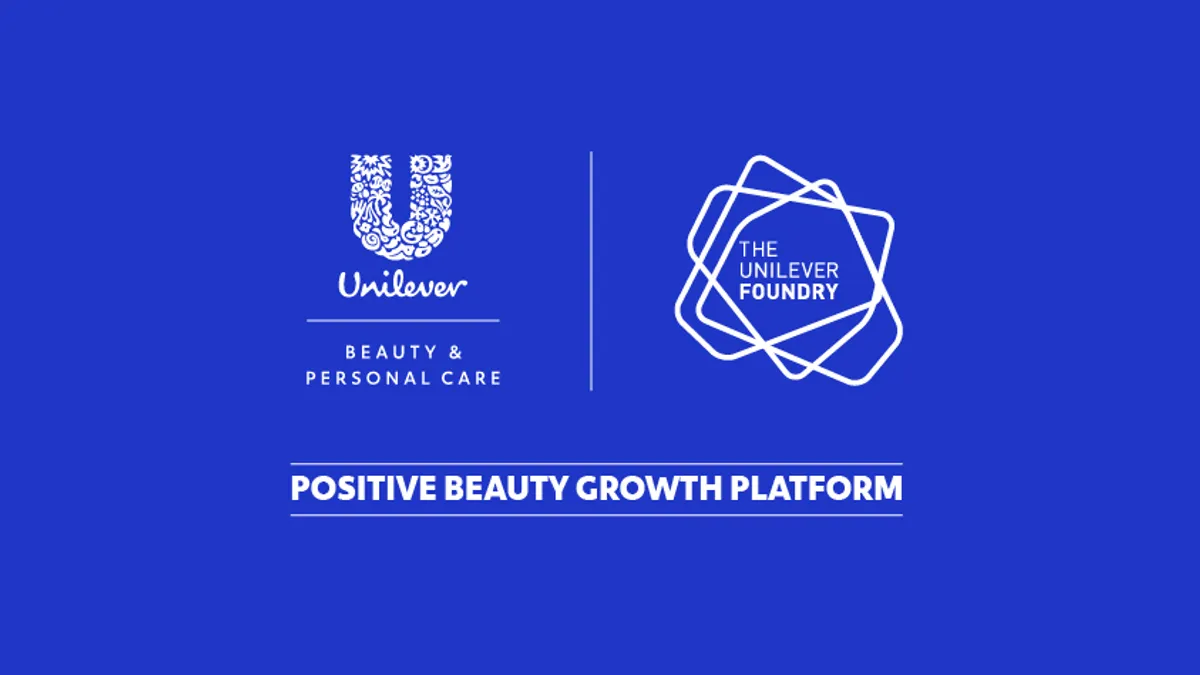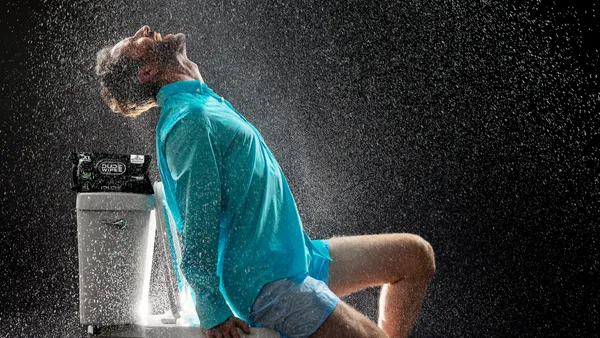Dive Brief:
- Unilever unveiled a new program that will partner with startups and "scaleups" — later-stage startups with proven growth — according to an announcement. Submissions for pitches are open through Oct. 19, with a shortlist to be announced Nov. 3. A live virtual pitch competition will take place Nov. 18.
- The initial round of pitches for the Positive Beauty Growth Platform will center on social commerce, a category Grand View Research forecasts will be worth nearly $3.4 trillion by 2028. Unilever is specifically seeking companies specialized in livestreaming shopping, shoppable media, gaming commerce and group buying.
- Winning participants have the chance to test their concepts with the packaged good giant's brands, which include Dove and Axe. Unilever is positioning the initiative as part of a larger Positive Beauty strategy introduced earlier this year that seeks to make its products more equitable and sustainable, while also looking to put its beauty and personal care brands on the bleeding edge of tech,.
Dive Insight:
Unilever clearly recognizes that technology needs are changing quickly in packaged goods. The pandemic has accelerated consumer adoption of e-commerce by a number of years, while social media and digital platforms are investing more in building out their shopping offerings to meet surging demand. With the new program, the CPG marketer looks to stay on top of these category shifts by working with up-and-coming companies ranging from seed-stage startups to more established businesses with name recognition in the industry.
The Dove and Axe owner has other bets in the startup space, including Unilever Ventures, a venture capital arm that has backed companies like the grocery-delivery service Instacart, and The Unilever Foundry, which has piloted more than 400 startup projects. The Positive Beauty Growth Platform is a collaboration between The Unilever Foundry and Unilever's Beauty & Personal Care division. In the announcement, Sunny Jain, president of Beauty & Personal Care, said that it is a strategic imperative for Unilever to stay on top of the "mega-trends of the future."
"Building a thriving two-way relationship with the global startup community helps power innovation and experimentation, deliver business solutions and fuel growth," Jain said in a statement. "By harnessing startups' disruptive approach, we will help future-proof our brands by pioneering into new spaces shaping the beauty industry."
Social commerce, which was slowly picking up traction prior to the COVID-19 crisis, has seen an explosion of interest as platforms try to court more dollars from brands moving their businesses online. TikTok, one of the clear winners of the pandemic, has made "community commerce" — the link between its popular creator base and shopping capabilities — a key part of its pitch to advertisers in recent months. Facebook and Instagram are similarly rejiggering aspects of the user experience to prioritize driving purchases.
Beauty and personal care are two categories primed to benefit from a closer marriage of influencer marketing, social content and commerce. The segment is expected to see a compound annual growth rate of 30% in social commerce between now and 2028, according to Grand View's findings.
At the same time, Unilever is trying to square its new startup enterprise with purpose-driven marketing through Positive Beauty. The strategy that debuted last spring pledges to diversify beauty ideals — one of its first moves was banning the use of the word "normal" in beauty and personal care advertising and packaging — and cut back on Unilever's environmental footprint.















